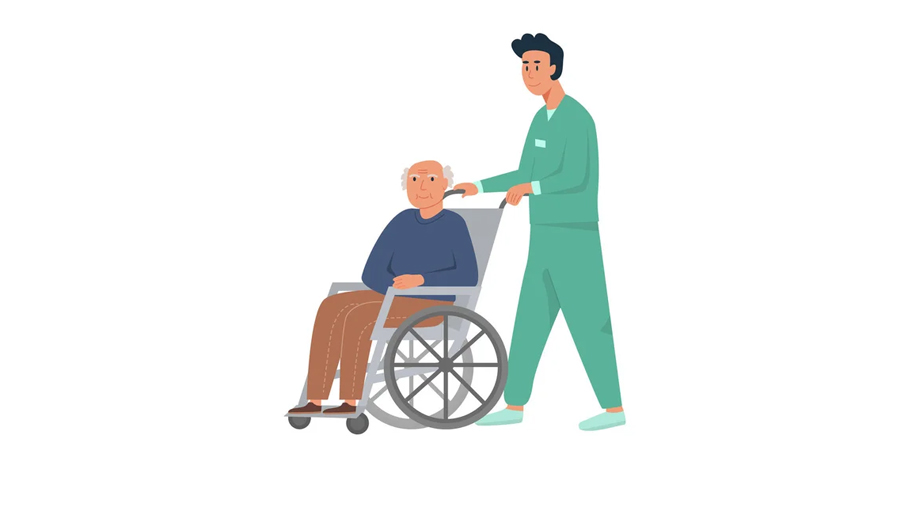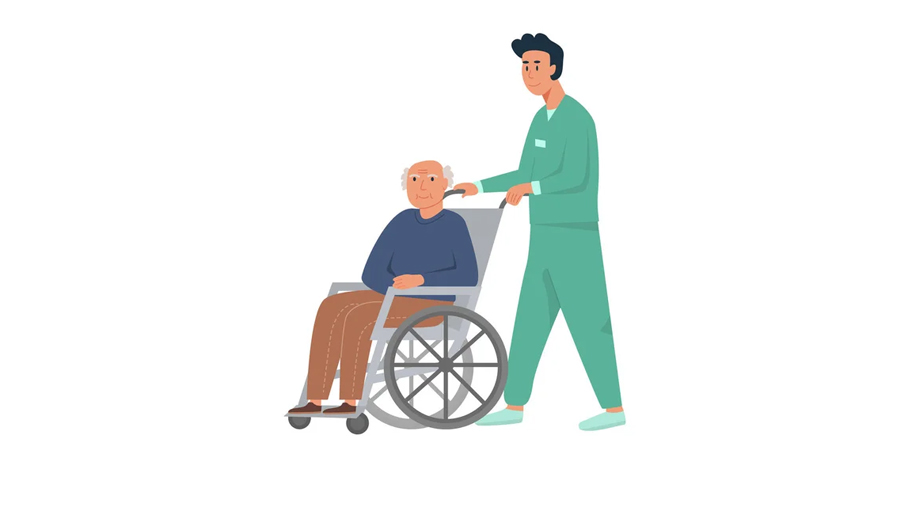
In December 2016, then-president Obama signed a new law: the 21st Century Cures Act. The law was strongly supported by senators and the House of Representatives and easily passed. It covers a wide array of subjects related to healthcare services and aims to inject higher efficiency, drive cost reduction and improve care quality. Part of the bill, in section 12006, encourages the state agencies to implement electronic visit verification systems (EVV System) for personal care services and home health care services under Medicaid.
EVV Systems are becoming increasingly popular in the healthcare industry due to their ability to provide accurate and reliable documentation of healthcare services. It is an electronic system that verifies and documents the time and location of services provided by healthcare professionals. This information is then used to ensure compliance with state and federal regulations and to ensure accurate payment for services rendered.

So, how does the EVV system work?
EVV technology typically involves the use of mobile devices or dedicated hardware that is connected to a central database. Healthcare professionals use these devices to clock in and out of patient visits, which creates an electronic record of the service provided. This information is then transmitted to the central database, where it can be accessed by healthcare providers and payers to verify the services provided and ensure compliance with regulations.
For homecare providers, EVV Systems is a crucial tool for ensuring accurate documentation of healthcare services and compliance with regulations. By understanding the different types of EVV systems available and how they work, healthcare providers and payers can make informed decisions while choosing the system that best fits their needs.
In this blog, we will cover what is electronic visit verification, how does the EVV system work, EVV compliance, and types of health care EVV.
What is Electronic Visit Verification (EVV)?
EVV stands for Electronic Visit Verification, which is a technology-based system used in the healthcare industry to verify the delivery of home-based care services to patients. It allows caregivers to electronically record the start and end times of their visits, along with other relevant information such as the services provided and the patient’s condition.
EVV systems for home care and personal care services provides a means to verify visits conducted as a part of services provided related to:
- The type of service
- Date of service provided
- Location of the service delivery
- Service provided by (caregiver’s details)
- Time details – service start and end times
This information is sent to the healthcare provider for review and verification, ensuring that patients receive the care they need and that healthcare providers are reimbursed for the services they provide.
What is EVV compliance?
EVV compliance refers to the adherence of healthcare providers and caregivers to the EVV requirements set by federal and state regulations. In the United States, the 21st Century Cures Act mandates that all Medicaid-funded personal care services and home healthcare services must adopt EVV systems to verify the delivery of care. This requirement aims to improve the quality of care delivered to patients and prevent fraud and abuse in the healthcare system.
Compliance includes meeting several requirements, such as verifying the caregiver’s identity, recording the start and end times of the visit, capturing the caregiver’s location and the services provided, and ensuring the accuracy and integrity of the EVV data. Compliance is required to avoid penalties, such as payment reductions or suspensions, imposed by federal and state Medicaid programs.
To achieve EVV compliance, healthcare providers can choose from several EVV system options, including telephonic, mobile, and GPS-based systems, and ensure that their EVV system meets the federal and state requirements. It is best to be up-to-date with your state-specific EVV requirements, whether you based out of Texas, Ohio, New York, Louisiana or elsewhere.
They can also train their caregivers on how to use the EVV system correctly and monitor EVV data regularly to identify any discrepancies or anomalies.
Thus, EVV compliance is a critical requirement for healthcare providers and caregivers who provide Medicaid-funded personal care services and home healthcare services. Compliance with EVV regulations ensures the quality care delivery to patients, reduces instances of fraud, and benefits caregivers too. Non-compliance, on the other hand, can result in penalties and other consequences.
Key regulations for Homecare Providers
Homecare providers are subject to a variety of regulations that they need to follow to ensure compliance with federal, state, and local laws. Some of the key regulations that homecare providers need to adhere to include:
1. 21st Century Cures Act: This act mandates the use of Electronic Visit Verification (EVV) for all Medicaid-funded personal care services and home healthcare services in the United States.
2. Occupational Safety and Health Administration (OSHA): Homecare providers must ensure a safe and healthy work environment for their employees and comply with OSHA standards regarding workplace hazards, such as bloodborne pathogens, hazardous chemicals, and personal protective equipment.
3. Fair Labor Standards Act (FLSA): Homecare providers need to comply with FLSA regulations regarding minimum wage and overtime pay and provide accurate records of hours worked and compensation received by their employees.
4. Health Insurance Portability and Accountability Act (HIPAA): Homecare providers need to comply with HIPAA regulations regarding the privacy and security of patients’ protected health information (PHI).
5. State licensure requirements: Homecare providers need to comply with state licensure requirements, such as obtaining a license or certification to operate in a particular state and meeting state-specific regulations regarding training, staffing, and quality of care.
6. Medicare and Medicaid regulations: Homecare providers need to comply with Medicare and Medicaid regulations regarding reimbursement, eligibility, and quality of care.
Thus, homecare providers need to follow various regulations to ensure compliance with federal, state, and local laws. These regulations include the use of EVV, OSHA standards, FLSA regulations, HIPAA regulations, state licensure requirements, and Medicare and Medicaid regulations.
Different types of Health Care EVV Systems
EVV systems work on different underlying technologies, which form the basis for their classification. There are several types of Health Care EVV systems available in the market today, including:
- Biometric recognition
- Telephony
- Mobile technology (Phones & Tablets)
Which EVV type to choose?
Let us take a look at the various types of EVV systems and see how they work:
Biometric Recognition
This system uses dedicated hardware, using caregivers’ scans of their fingerprints or recording voice samples to register their visit. These devices need to be installed on the care recipient’s premises.
While this method serves the purpose, here are some downsides that need to be considered: the biometric devices are costly, and each care recipient has to have a dedicated biometric device installed. Also, since these devices are required to be placed on the recipient’s premises, it can be seen as an inconvenience.
Telephony
This system requires the landline phones available of the care recipient’s address for visit verification. Here’s how it works: the caregiver makes a call using the landline telephone at the recipient’s place to record the visit.
Based on a recent National Health Interview Survey (NHIS), it’s found that almost half of US households do not have a landline. Smartphones have become a companion for most people in the United States while landline phones are rapidly losing relevance. Thus, the declining popularity of landlines makes this option historical and therefore a weak contender as an EVV solution.
Mobile Technology (Phones & Tablets)
This method of EVV option uses the caregiver’s own mobile devices – smartphones and tablets – enabling them to record visits via an app (for EVV), text, or phone call. Smartphones and tablets are constantly evolving and are becoming more powerful, and with increasing maturation and affordability of key technologies like mobile apps, devices, sensors, and cloud technology, mobile technology offers the newest and the most future-proof EVV option.
A mobile technology-driven EVV solution allows you to do more than just verify visits. So, apart from visit verification, any GPS-enabled phones and tablets can be used to do some of the following functions:
- Serve as a communication channel between field and office
- Provide Timekeeping for a caregiver for payroll
- Track mileage and other costs
- Generate reports for documentation and audit
- Capture data from the field: signature, notes, photos, and more
- Monitor caregiver’s safety
- Payroll integration with third-party
- Serve as a real-time broadcast/alerts channel for one-to-one or one-to-many
Conclusion
In conclusion, EVV technology is an essential tool for the healthcare industry, providing a reliable and efficient means of verifying the delivery of home-based care services to patients. With several types of EVV systems available, healthcare providers can choose the one that best suits their needs and budget, ensuring quality care delivery and reducing instances of fraud and abuse in the healthcare system.
Click here to try allGeo’s Automatic Electronic Visit Verification System. If you’re looking for an EVV solution for your agency talk to our EVV expert today.
